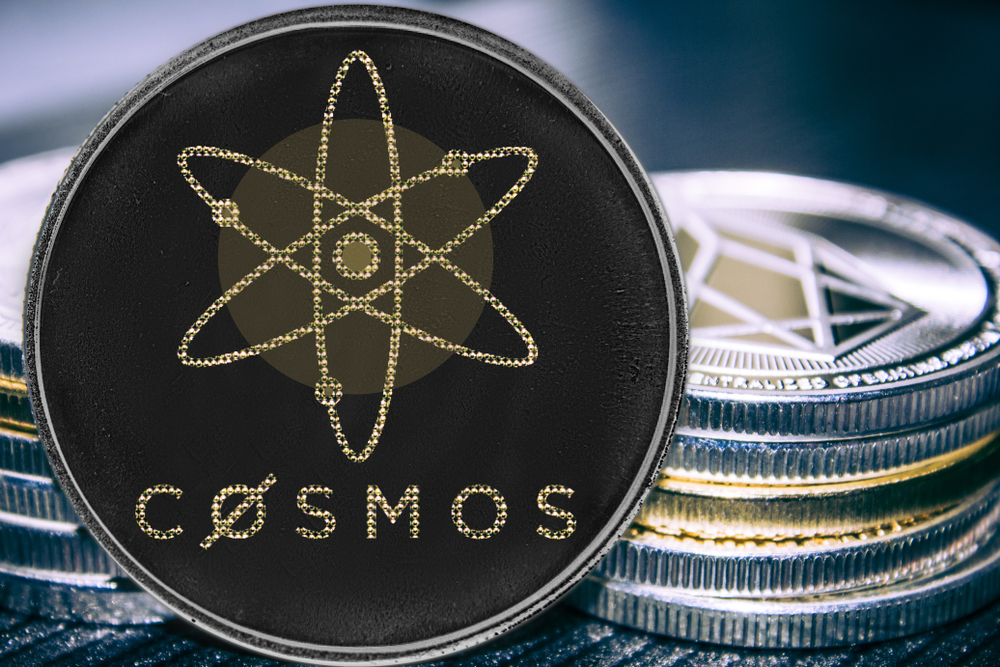Although Bitcoin and Ethereum are the most popular blockchains, there are other innovative networks shaping the crypto industry. One of them is Cosmos. This guide explores the Cosmos blockchain along with its native token ATOM. Keep reading to learn more.
Exploring Cosmos
Cosmos is a revolutionary decentralized blockchain that advocates for interoperability. It is also known as the “Internet of Blockchains,” as it allows multiple blockchains to interact. With chains now able to communicate with each other, thanks to Cosmos, there has been a new wave of partnerships in the blockchain space.
History of Cosmos
Cosmos officially launched in 2018. It is the brainchild of computer scientists Ethan Buchanan and Jay Kwon. The two founders partnered with Interchain Foundation to create the Cosmos blockchain. Before their project went live, they managed to raise over $18 million in three initial coin offerings of Cosmos’ native token ATOM.
Cosmos adopts Tendermint as its consensus algorithm. This technology allows the blockchain to process more than 9,000 transactions per second securely. Only 150 validators are available to approve transactions.
Since its launch, Cosmos has facilitated the development of several well-known blockchains, including Thorchain, BNB Chain, and Terra. The Cosmos ecosystem now has a combined market capitalization of $140.5 billion, making it the second-biggest only behind Ethereum.
How Cosmos Works
There are numerous elements in Cosmos that make blockchain interoperability possible. They include:
The Cosmos Hub
The Cosmos Hub facilitates crypto transfers from one interconnected blockchain to another. This eliminates the need to use platforms like token bridges to move crypto assets to another network.
Inter-Blockchain Communication
Blockchains built using Cosmos technology have an Inter-Blockchain communication (IBC) structure. But what does it do? With IBC, tokens are burned when a user makes a transfer, and an equivalent amount of those tokens is minted on the blockchain to which the assets are being transferred.
Tendermint
As mentioned, Cosmos uses Tendermint, a proof-of-stake consensus algorithm, to process transactions. To secure the network, validators are required to stake ATOM tokens. However, while Tendermint brings several benefits, it also carries centralization risk, given that five of the 150 validators hold 30% of the voting power in Cosmos.
What is Special About Cosmos?
Decentralized application hosting – Web3 developers find Cosmos an ideal blockchain for building their decentralized apps, as the network provides a comprehensive developer toolkit to facilitate the creation of fast and user-friendly dApps.
Governance and Independence – Although chains built within the Cosmos ecosystem are interconnected, they are allowed to create their own governance structures and operate independently.
The ATOM Token
With a market capitalization of $2.19 billion, ATOM is the 29th largest token. Per data on CoinMarketCap, ATOM has a circulating supply of 292.1 million, with each token changing hands for $7.68. Some crypto analysts are optimistic that the Cosmos native token will hit $22 in 2025 and then touch $37 by 2030.
So, what can ATOM holders do with their tokens? Cosmos allows them to stake the crypto asset in return for a 6% Annual Percentage Yield (APY).
ATOM Tokenomics
Here is how the Cosmos team allocated ATOM:
- 12% of the total token supply was allocated for initial coin offerings.
- 10% was given to the foundation managing the Cosmos ecosystem to ensure it continues building the project.
- Tendermint Company received 10% of the total ATOM supply.
ATOM Wallets
Like any other cryptocurrency wallet, an ATOM wallet allows you to interact with blockchains within the Cosmos ecosystem seamlessly. Moreover, you can store, stake, receive, and send ATOM tokens safely.
ATOM wallets come as mobile and desktop apps, browser extensions, and hardware. To store your ATOM tokens offline, go for Ledger. On the other hand, you can use Atomic Wallet, Trust Wallet, Guarda Wallet, Math Wallet, and Cosmostation if you wish to store your ATOM online.
Final Thoughts
Cosmos is actively addressing the issue of blockchain interoperability. However, the team behind the project needs to solve the centralization problem when it comes to staking.
